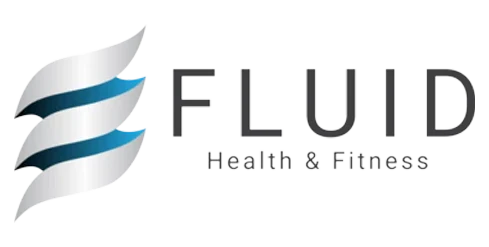Body Confidence & Intuitive Eating
It’s important to choose a relationship with food that will not only benefit you physically, but also positively impact your emotional and mental health. This article will cover how to Improve your relationship with food by incorporating Body Confidence and Intuitive Eating principles. Sometimes this topic can be the missing link for true optimal health and well-being.
What is Body Confidence?
Body confidence is how a person feels about the way they look. When we have body confidence we accept, and are happy with how we look and what our bodies can do.
For some, thinking about food and making food choices alongside weight and body image issues adds a lot of stress to everyday life. It can prevent a person from feeling healthy, energetic, worthy, or even lovable.
7 Easy ways to improve your body confidence:
- Change your negative thoughts into empowering thoughts.
- Focus on the amazing things your body does for you.
- You are not just a body but a person - list 10 things you like about yourself.
- Focus on health and wellness goals instead of the scale.
- Surround yourself with positive body influences – unfollow social media that makes you feel “less than”
- Pursue goals for you - not for anyone else.
- Take care of YOU – encourage and treat yourself like your own best friend.
The first step in this process is identifying the limiting beliefs that keep you stuck and that are keeping you from being your best self. Next, replace those negative thoughts with empowering beliefs about healthy weight and body confidence. If this is challenging for you to do on your own, find a dietitian or psychologist that can help you.
What are the negative beliefs that are sabotaging your right to be happy and enjoy life?
“You've been criticizing yourself for years and it hasn’t worked. Try approving of yourself and see what happens.”
—Louise Hay
Achieve a healthy weight by using wellness as your motivator and practicing compassion towards yourself along the way.
What is Intuitive Eating:
Intuitive Eating helps create a healthy relationship with food. It’s transitioning from an attitude of negativity and restriction to one of kindness and care for your body. The goal is to shift away from using external cues (weight, looks, dietary restrictions) and toward relying on internal cues (hunger, fullness, satisfaction, emotion, energy).
Practicing mindfulness helps you become more aware of the physical sensations that arise from within your body in order to get both your physical & mental health needs met. Intuitive Eating also helps to remove thought barriers like negative rules or untrue beliefs that get in the way of body awareness.
“People are tired of feeling at war with their own bodies,” says Evelyn Tribole, RDN, who, with Elyse Resch, RDN, coauthored the book Intuitive Eating.
Some of the main concepts of Intuitive Eating:
- Respect and be kind to your body.
- Honor hunger and fullness cues - listen to your body.
- Discover satisfaction – eat joyfully.
- Take a gentler approach to health and nutrition.
- Address your emotions and stress without using food.
Respect and be kind to your body.
Well-being is a blend of physical and mental health, and we’re better off when we don’t use weight as the only measure of wellness. By shifting your focus to health versus the scale, an evening walk becomes more about taking a break to clear your head and reboot your energy, instead of a focus on burning a certain number of calories.
Three aspects of body kindness include love, connection, and care. Love means choosing to love yourself even if you wish your body were different. Connection means becoming aware of what your body needs. Care means making self-care choices based on that love and connection. For example, you can think about exercise in the following way: “I love my body, and while I may feel out of shape, I appreciate that it takes me where I need to go each day.” Or “I connect with my body when I hear it tell me that my knees are sore and that there are movements I am learning that will make me stronger and more flexible.” Or “I am taking care of my body’s needs not because I need to whip my body into shape, but because I want to give my body what it needs to feel good.”
Honor Hunger and Fullness - Listen to your body.
The next step to eating intuitively is noticing and responding to hunger and feelings of fullness—which are truly at the heart of intuitive eating. See food as fuel not as a filler. Learn and practice mindful eating techniques.
Discover Satisfaction - Eat joyfully.
Eating should be an enjoyable, satisfying experience. If our food choices, meals and eating patterns leave us unsatisfied, we'll keep looking for (or crave) more food. Intuitive eating teaches you about what can satisfy you. There are no “bad foods”. No food is a "guilty pleasure" but instead, just a food you decide to eat and enjoy. Give yourself permission to enjoy a variety of foods without guilt. Consider adding treats for your other senses: Set out flowers and put on relaxing music or light a candle.
Take a gentle approach to nutrition.
With intuitive eating, nutrition is important but not restrictive. Instead, nutrition is simply a guide as to what will keep your body feeling good. Sometimes, we forget what basic healthy eating even looks like because we get side-tracked by what the media tells us. Visit with a nutrition expert who will not only help you prioritize what’s right for you but also values the mental health component of good nutrition. An Intuitive Eating approach might be to think about what foods you can add instead of subtracting. Increasing your intake of water, fruit, or vegetables is good for your health and doesn’t require banning anything. Nutrient-packed foods should satisfy the palate too – so find foods your taste buds agree with.
Address your emotions and stress without using food.
Incorporate some of these examples of self-care like yoga, breathing, meditation, and talking with friends. Take care of your Stress Response System as discussed below.
How does Body Confidence and Intuitive Eating Affect our Stress Response System?
Negativity and lack of body confidence can mess with our healthy metabolism. There is a strong psychosocial component that plays a part in achieving healthy weight and overall optimal health. Oftentimes, when we don’t address the stress in our lives it will indirectly sabotage our healthy weight and wellness efforts.
When a person’s chronic stress response creates an overproduction of a hormone called cortisol, According to Today’s Dietitian; Vol. 11 No. 11 studies have linked elevated cortisol to:
- Increased appetite
- Sugar cravings
- Added abdominal fat & weight gain
- Sleep issues
- Brain fog, anxiety, & depression
- Insulin resistance
- Immune suppression & inflammation
This same stress response happens when you experience common negative emotions like anger, fear, and guilt. So, if you’re eating something and it causes you to feel guilt then cortisol increases and..... even if you’re exercising and eating healthier food, stress can disrupt your weight loss efforts. Integrating Body Confidence and Intuitive Eating by treating yourself with kindness and compassion can help you get rid of negative emotions and guilt associated with food. Other ways to tackle negative emotions and in turn reduce cortisol levels include the use of yoga, meditation, breathing, mindfulness, or tapping and emotional freedom techniques.
What can you do today?
Regardless of whether you want to reach a healthy weight or if you just want to eat healthier, visit with a registered dietitian to make sure you are getting the nutrients that you need. At Fluid Health and Fitness, we help people navigate individualized plans for success. Oftentimes, this includes intuitive Eating and Body confidence strategies along with a holistic approach needed for long term success.
If you are looking for 2-3 visits to jumpstart your weight loss efforts or if you want to work with a Registered Dietitian long-term to make a significant transformation, click here to set up a free 15-minute call to learn more.


